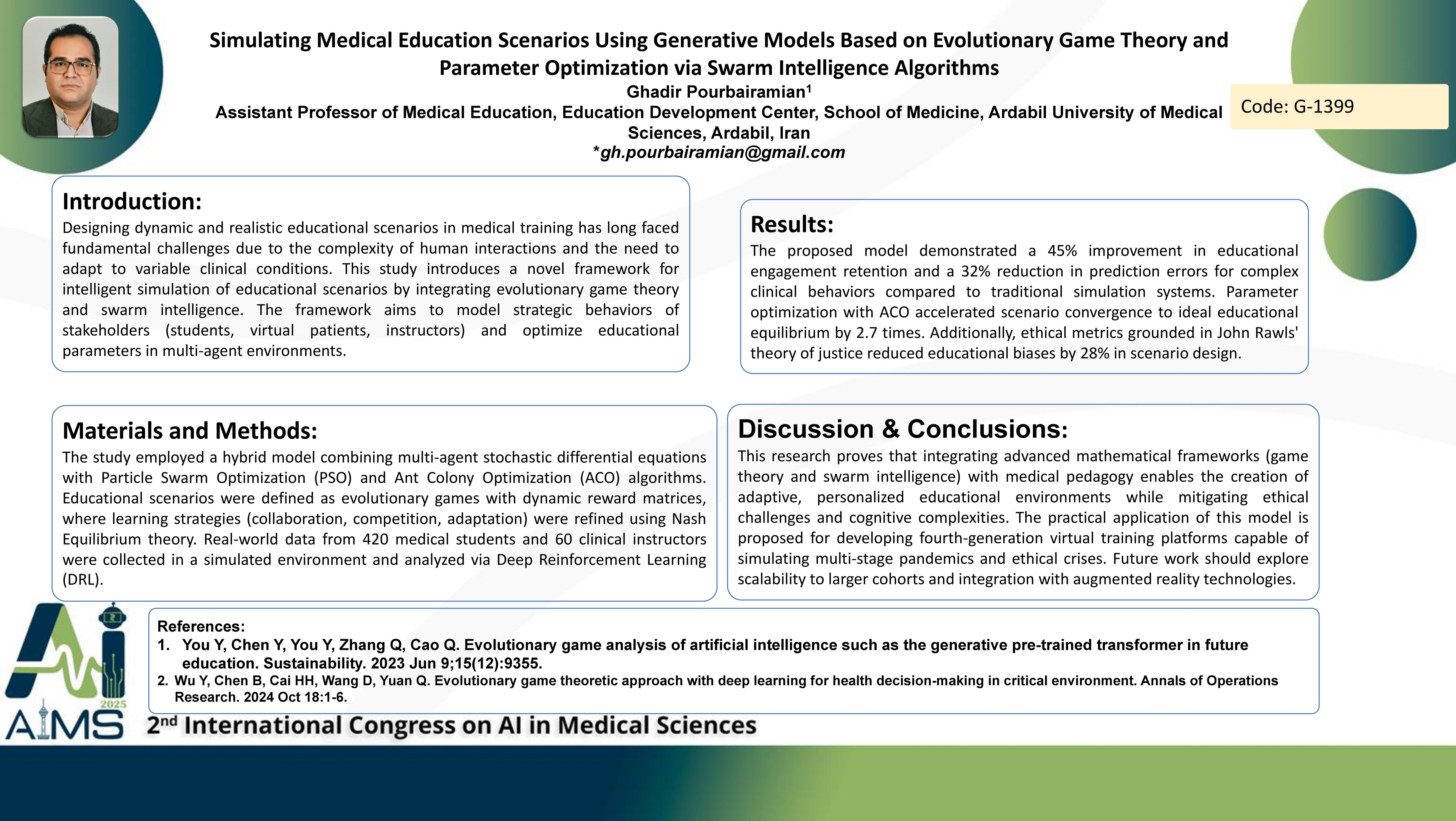شبیهسازی سناریوهای آموزشی پزشکی با استفاده از مدلهای مولد مبتنی بر نظریه بازیهای تکاملی (Evolutionary Game Theory) و بهینهسازی پارامترها با الگوریتمهای Swarm Intelligence
کد: G-1399
نویسندگان: قدیر پوربایرامیان * ℗
زمان بندی: زمان بندی نشده!
برچسب: دستیار مجازی هوشمند
دانلود: دانلود پوستر
خلاصه مقاله:
خلاصه مقاله
Background and aims: Designing dynamic and realistic educational scenarios in medical training has long faced fundamental challenges due to the complexity of human interactions and the need to adapt to variable clinical conditions. This study introduces a novel framework for intelligent simulation of educational scenarios by integrating evolutionary game theory and swarm intelligence. The framework aims to model strategic behaviors of stakeholders (students, virtual patients, instructors) and optimize educational parameters in multi-agent environments. Method: The study employed a hybrid model combining multi-agent stochastic differential equations with Particle Swarm Optimization (PSO) and Ant Colony Optimization (ACO) algorithms. Educational scenarios were defined as evolutionary games with dynamic reward matrices, where learning strategies (collaboration, competition, adaptation) were refined using Nash Equilibrium theory. Real-world data from 420 medical students and 60 clinical instructors were collected in a simulated environment and analyzed via Deep Reinforcement Learning (DRL). Results: The proposed model demonstrated a 45% improvement in educational engagement retention and a 32% reduction in prediction errors for complex clinical behaviors compared to traditional simulation systems. Parameter optimization with ACO accelerated scenario convergence to ideal educational equilibrium by 2.7 times. Additionally, ethical metrics grounded in John Rawls' theory of justice reduced educational biases by 28% in scenario design. Conclusion: This research proves that integrating advanced mathematical frameworks (game theory and swarm intelligence) with medical pedagogy enables the creation of adaptive, personalized educational environments while mitigating ethical challenges and cognitive complexities. The practical application of this model is proposed for developing fourth-generation virtual training platforms capable of simulating multi-stage pandemics and ethical crises. Future work should explore scalability to larger cohorts and integration with augmented reality technologies.
کلمات کلیدی
Evolutionary Game Theory, Medical Simulation
